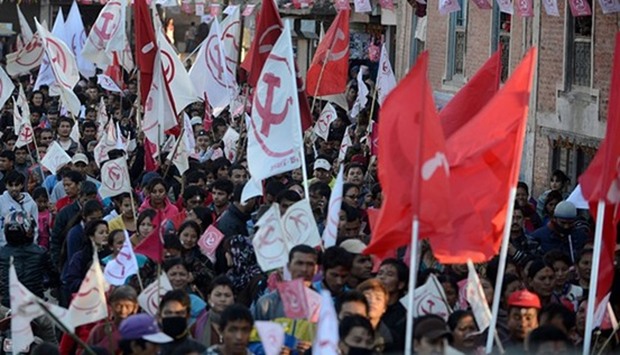The Maoists, who staged a decade-long insurgency in Nepal, are a minority partner in government but have lost ground since winning a landslide victory in the Himalayan nation's first post-war elections in 2008.
Many former guerrillas, including ex-premier Baburam Bhattarai, have broken away from the main party in recent years, accusing its leaders of betraying their original revolutionary ideals.
"After today, our days of defeat are over. This is the beginning of our victory," Maoist chief Pushpa Kamal Dahal, better known by his nom-de-guerre Prachanda, told cheering cadres in Kathmandu.
"We have to unite to take the process that we began together... to its conclusion. Unity is our only strength," he said.
Commentators said the Maoists' decision to reunite under a new name -- Communist Party of Nepal (Maoist Centre) -- emerged out of a need to reverse their declining fortunes.
They currently hold just 80 out of 575 elected seats in parliament, with the ruling coalition controlled by the Communist Party of Nepal (Unified Marxist Leninist).
An estimated 16,000 people died in the "people's war" fought by the Maoists against the state before the rebels signed a peace deal in 2006, paving the way for the Hindu kingdom's transformation into a secular republic.
"The divisions of the party after the peace deal affected their base on the ground and a reunification will energise their supporters and possibly attract voters as well," said Guna Raj Luitel, editor of Nepali daily Nagarik.
"In Nepal, bigger parties tend to win the votes. Their unification re-establishes them as a big party," Luitel told AFP.
While the new party brings together several Maoist splinter groups, a handful of leaders -- including Bhattarai, who quit last year to establish his own outfit -- have stayed out of the process.

